Scientific Publications of the Cologne Institute for Economic Research: IW-Trends, IW policy papers, IW-Analysen, IW-Studien, IW-Reports, IW-Kurzberichte and Expertises. Read more about our Approach to Research.
- Home
- Studies
Studies
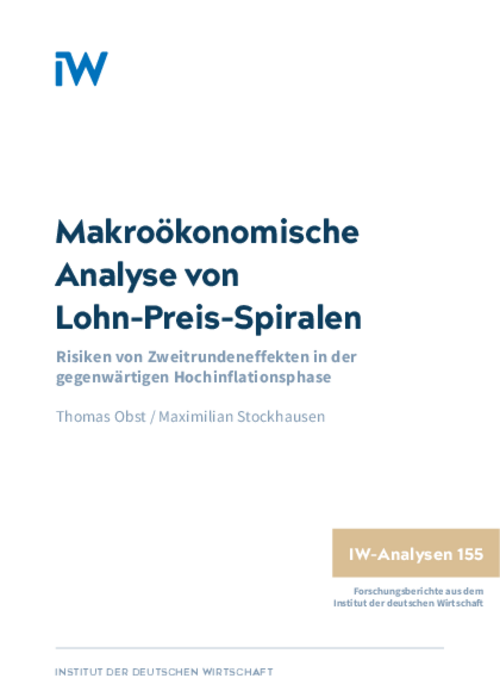
A Macroeconomic Analysis of Wage-Price Spirals
The subject of this Analysis is the forms that wage-price spirals can take and how they influence macroeconomic stability and inflationary trends in Germany.
Thomas Obst / Maximilian Stockhausen IW
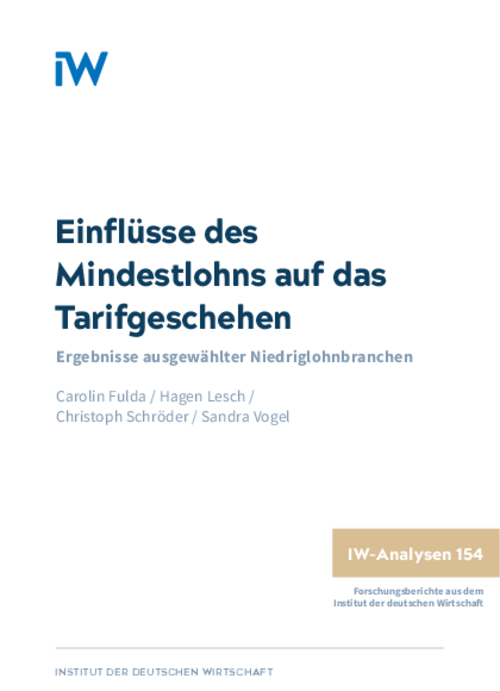
The Influence of the Minimum Wage on Collective Bargaining
This analysis examines the connection between collective wage bargaining in Germany and the adjustments to the statutory minimum wage determined by the Minimum Wage Commission since June 2020.
Carolin Fulda / Hagen Lesch / Christoph Schröder / Sandra Vogel IW
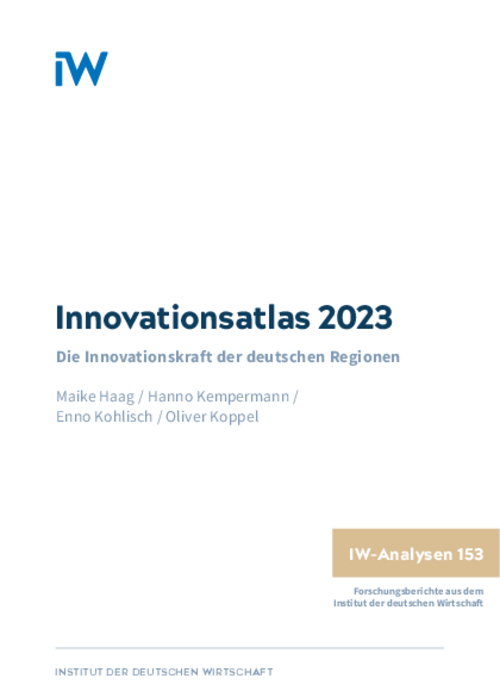
Innovation Atlas 2023: The innovative strength of the German regions
All indicators of innovative strength in Germany – from research intensity and scientific and technical employment structures to patent successes – point to a strong south-north, west-east and urban-rural divide.
Maike Haag / Hanno Kempermann / Enno Kohlisch / Oliver Koppel IW
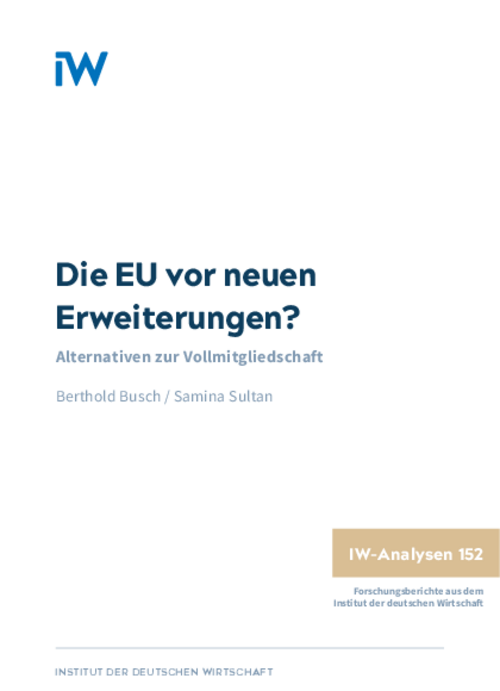
EU Enlargement? Alternative concepts to full membership
Debate on whether the European Union (EU) should accept new members has recently gained momentum. In June 2022, just months after Russia’s invasion of Ukraine, the European Council granted both the latter nation and the Republic of Moldova the status of candidate country, and Georgia the status of potential candidate.
Berthold Busch / Samina Sultan IW
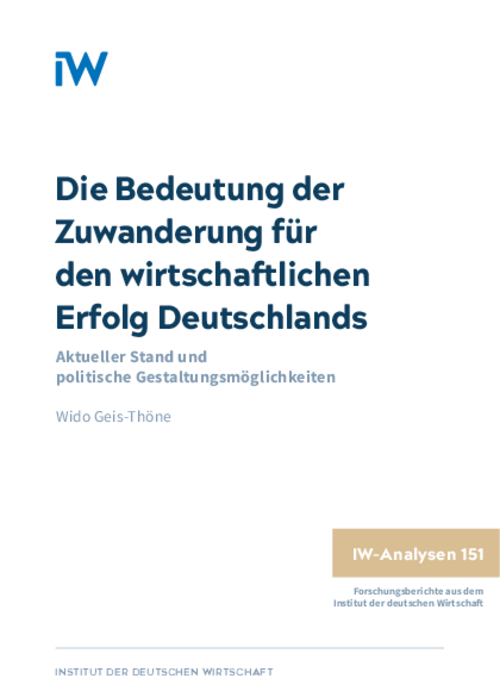
The importance of immigration for the German economy
As a result of demographic change, Germany will become increasingly dependent on immigration to secure its pool of skilled labour and stabilise its economic performance.
Wido Geis-Thöne IW
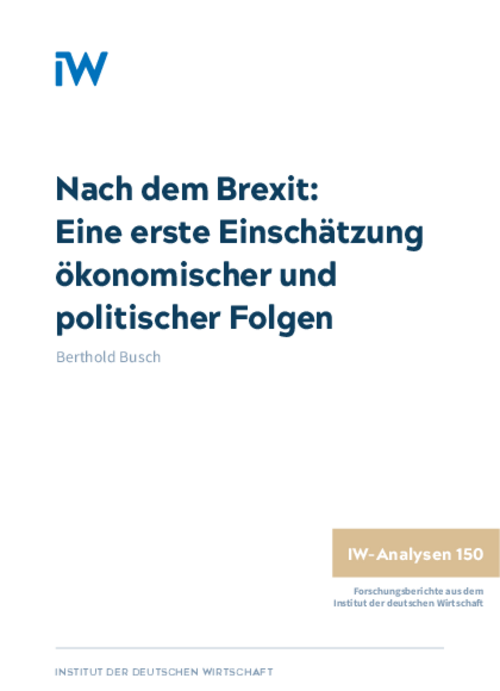
After Brexit: An initial assessment of the economic and political consequences for the UK
The British hopes for a high Brexit dividend as a result of the United Kingdom’s departure from the European Union have not been fulfilled.
Berthold Busch IW
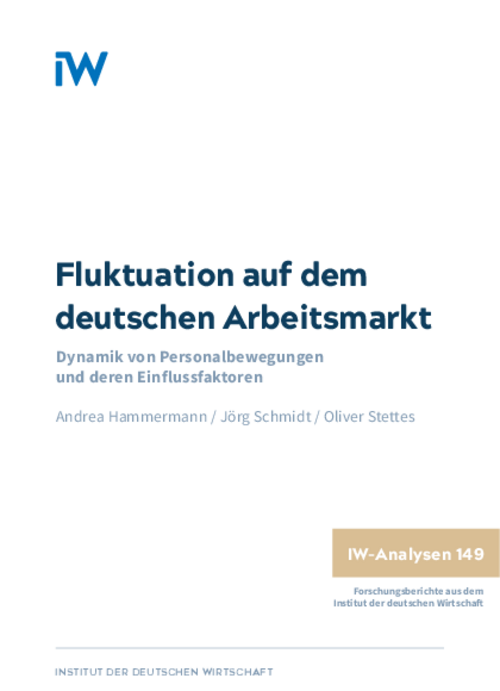
Labour turnover in Germany
Labour turnover in Germany tends to be relatively constant over time but decreases slightly in times of economic crisis, such as the Global Financial Crisis of 2008-2009 or the Covid-19 pandemic.
Andrea Hammermann / Jörg Schmidt / Oliver Stettes IW
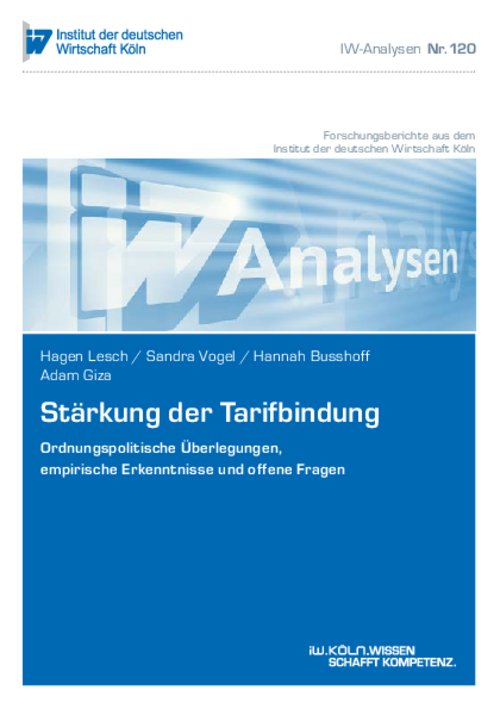
Expanding collective bargaining coverage
Declining collective bargaining coverage in Germany has prompted a debate on how the trend could be reversed. However, this debate makes no distinction between the coverage and the autonomy of collective bargaining.
Hagen Lesch / Sandra Vogel / Hannah Busshoff / Adam Giza IW
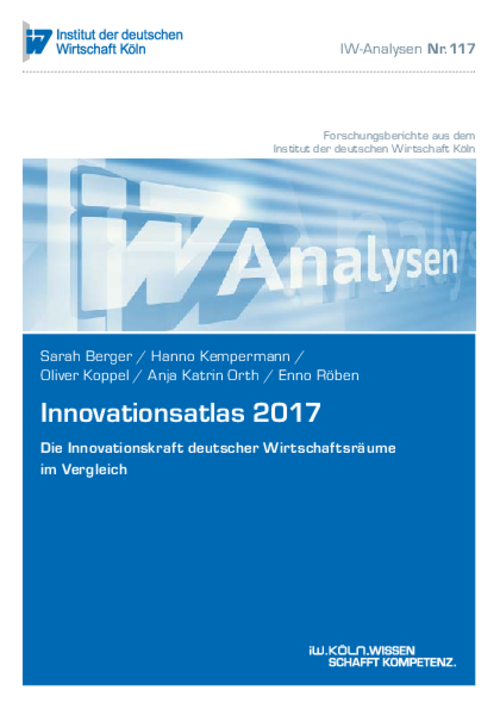
Innovationsatlas 2017
In Germany, there is a close link between R & D expenditures and employment of STEM graduates to successful patent applications. This chain of effects can be shown to exist both at the federal and regional level. Furthermore, virtually every indicator of innovation-related power exhibits a considerable southnorth, west-east, and urban-rural divide.
Sarah Berger / Hanno Kempermann / Oliver Koppel / Anja Katrin Orth / Enno Röben IW
Your search returned an incorrect status. You may have selected too many filters. You can jump back to your previous selection to adjust your search.
Understanding Science
- The scientific work of the German Economic Institute is independent and solution-oriented, internationally networked and socially relevant, methodologically open and interdisciplinary. We address the scientific discourse of experts, the general public as well as opinion leaders in politics, business and society. We want to be an audible voice in the economic policy discourse in Germany.
- Our work is innovative and confronts the scientific discourse: On the basis of scientifically recognized standards, we apply new methods, use new data sets, discuss new arguments and provide solution-oriented answers to current questions in economic analysis and economic policy. Our statements are theoretically founded and, where it is methodologically and empirically possible, evidence-based. We ensure that both the data basis and the methodological approaches are comprehensible. Modern methods of empirical economic and social research are as much a part of our tools as in-depth analyses of the institutional and political-economic conditions of economic developments.
- We do not exclude any theoretical and methodological approach, because diversity and competition promote progress in the sciences. The decisive factor is not a traditional paradigm, but whether and how a scientific approach leads further in the search for decision-guiding and action-relevant knowledge. Our research is not limited to economics, but is connectable to the debates and insights of other disciplines, such as ethics, history, education, political science, psychology, law, and sociology.
- Our research is aware of its normative conditionality. Every science of human social action requires a normative clarification of the concept of man. Freedom and (co-)responsibility are the central values for us. We see the human being as a being capable of freedom and responsibility, who in this sense is enabled and called upon to competent decisions and actions. In our view, open, liberal and democratic societies require a liberal and competitive economic order that counts personal responsibility and shared responsibility among its constitutive elements.
With our new newsletters on the following topics you no longer have an IW publication.
We send out our topic-specific newsletters every month.
Register here
With our new newsletters on the following topics you no longer have an IW publication.